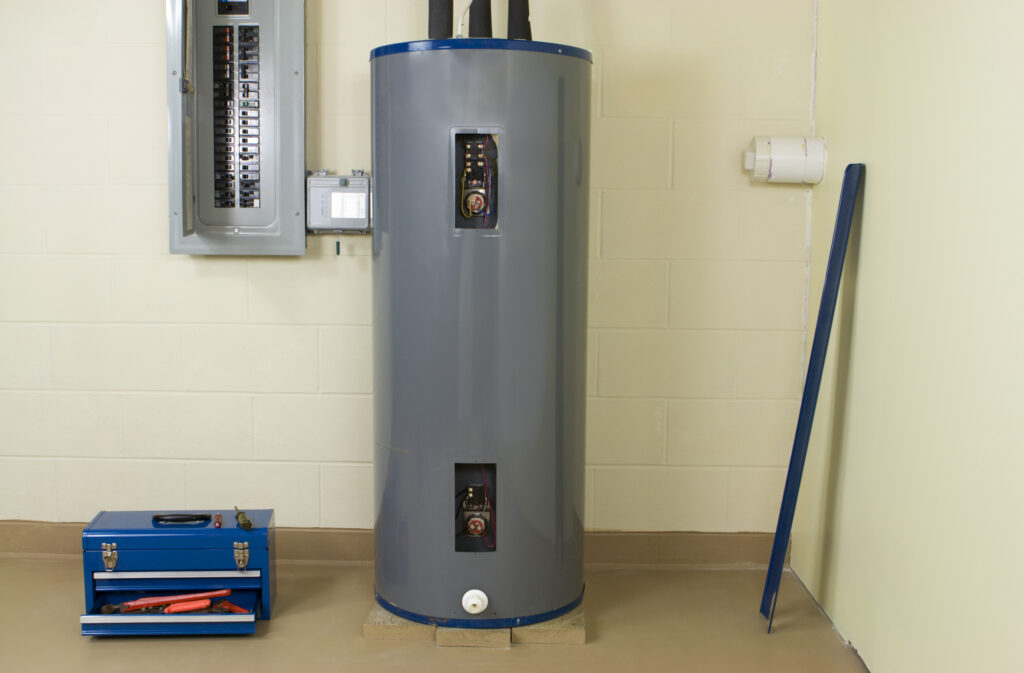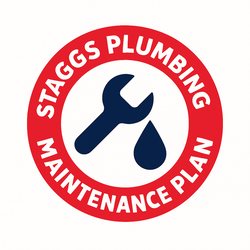What Size Water Heater Tank Do I Need?
A water heater is one of the most essential appliances in any home. Choosing the right size tank for your needs can help you save energy, money, and time. This guide will discuss all the factors to consider when selecting a tank size so you can make an informed decision on what’s best for you and your household. Find out more about what size water heater tank is best for your home and lifestyle today.

It is also important to consider the type of water heater tank you would like. Both traditional tanks and tankless systems are available, and the right choice for you may depend on factors such as your budget and how long you plan to stay in your home. Traditional tanks are typically less expensive upfront but require more energy to heat, while tankless systems can offer significant energy savings over time.
Sizing Tank Water Heaters
If all you want is an average calculation of the water heater tank you need, use these guidelines:
- For 1 to 2 people: 30-40 gallons
- For 2 to 3 people: 40-50 gallons
- For 3 to 4 people: 50-60 gallons
- For 5+ people: 60-80 gallons
However, the exact size of the water heater you require will depend on how you use hot water. For instance, while a family of 3 to 4 may be able to get away with a 50-gallon tank, those who use more hot water for laundry or bathing may find that they need a larger tank.
When it comes to deciding what size water heater tank you should purchase, there are several other factors to consider beyond just the number of people in your household. For instance, you may need a larger tank if your home has features such as a hot tub or an attached garage.
Why Do You Need an Accurately Sized Tank?
An accurately sized tank is important for a few reasons. First, an undersized water heater will not be able to provide enough hot water for your home’s needs and will result in running out of hot water quickly. On the other hand, an oversized tank can waste energy because it will take longer to heat the extra gallons of water, resulting in higher energy bills.
The best way to find the right size water heater tank for your home is to consult a professional plumber who can consider all of the factors mentioned above and accurately determine what size tank will suit you best. They will be able to help you select a quality water heater that meets your household’s hot water needs and your budget.
How to Find The Exact Size of Water Heater You Need
1. Find your busiest hot water using hour (Peak hour demand)
Your peak hour demand is the amount of hot water you will need during your home’s busiest hour of the day. It is important to take this into account when selecting a tank size, as it will factor into how quickly the tank can recover heat after being drained. It is expressed in gallons.
2. Use a Chart to Calculate Your Tank Size
Once you know your peak hour demand, use a chart to determine the tank size that will meet your needs. This will take into account the gallons per minute (GPM) of hot water used during the busiest hour and other factors such as recovery time and insulation.
On a typical chart, you may find that showering takes up 20 gallons of hot water during the peak hour, while washing dishes takes up 7 gallons. Add those two numbers together to get your total and then consult with a professional plumber to make sure you select a tank that can meet this demand.
If you take 2 showers in your home during the peak hour, your total gallons per minute (GPM) would be 40. This means that a 50-gallon tank should be enough to meet the needs of your household.
3. Select a water heater with a “first-hour rating” within 1-2 gallons of your peak hour demand.
The First Hour Rating (FHR) measures how many gallons of hot water the tank can provide in an hour. It is important to select a tank that has an FHR that is within 1-2 gallons of your peak hour demand to ensure that you have enough hot water available during the busiest hour.
The EnergyGuide label on the water heater tank has the FHR listed in the top left corner as the “Capacity (first hour rating)”.
Sizing Tankless Water Heaters
To size a tankless or on-demand water heater, you must first calculate the flow rate and temperature rise you will need for your home. The flow rate is how many gallons per minute (GPM) of hot water your household needs, while the temperature rise is the difference between the incoming water temperature and desired outlet water temperature.
To find the flow rate, add up the flow rates of all fixtures in the house that you use at the same time. For instance, a shower may have a flow rate of 2.5 GPM, while a dishwasher might use 1 GPM. Once you have this figure, you can use it to determine the right size tankless water heater for your needs.
As for the temperature rise, you can calculate this by subtracting the incoming water temperature from the desired outlet temperature. The incoming water temperature is typically around 50 degrees Fahrenheit, while the desired outlet temperature for most hot water applications is about 120 degrees Fahrenheit. As a result, you’ll require a tankless water heater that can provide a 70-degree temperature rise.
Once you have both the flow rate and temperature rise, consult a professional plumber to ensure that the tankless water heater you choose is powerful enough to meet your needs. They will also be able to determine the best location for installation as well as any additional requirements needed for proper functioning.
Now that you know how to choose the right size water heater tank for your home, you can confidently decide which water heater is best for you. With the help of a qualified professional, you can be sure that the tank you select will provide ample hot water for all of your household’s needs.
Selecting the right size water heater tank can help you save energy and money in the long run. Make sure you consider all of the factors mentioned above when selecting a tank size to ensure that you have enough hot water in your home.
Staggs Plumbing is Always Available to Help
Staggs Plumbing is here to help you find the right size water heater for your home. We can provide expert advice and guidance on which tank best suits your hot water needs.


